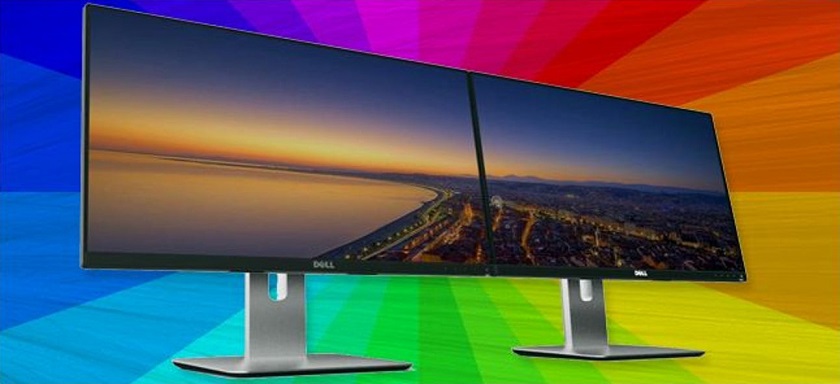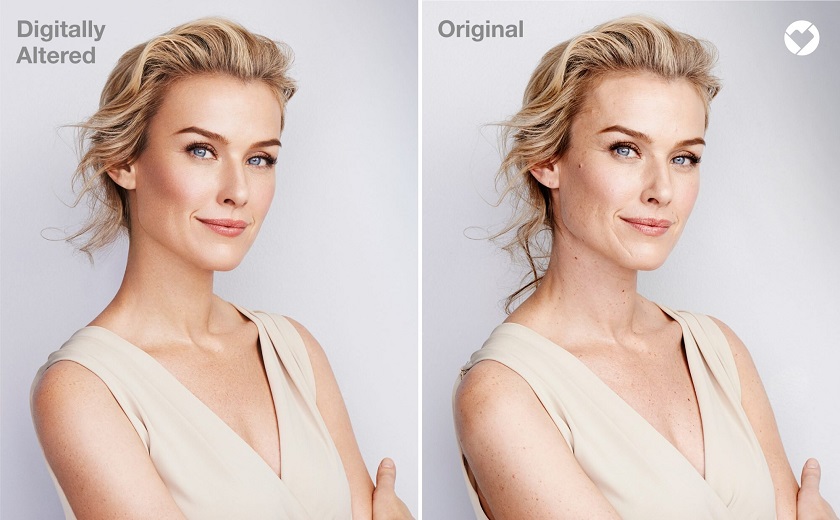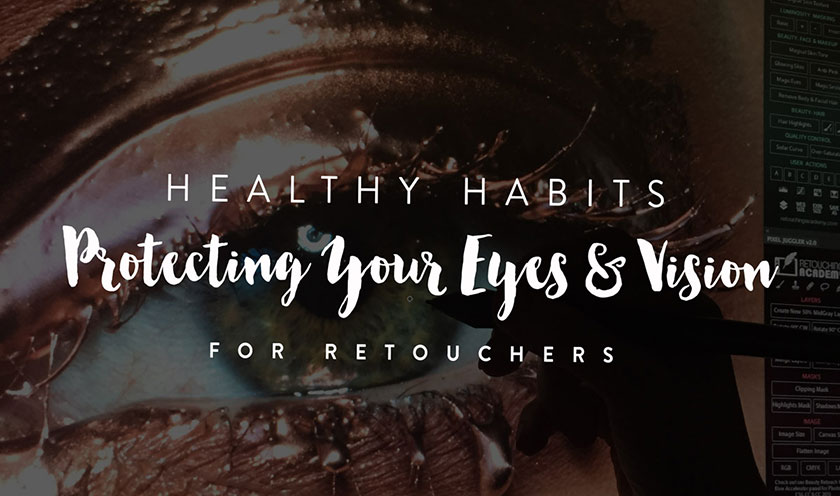Best Selling Products
Why does the PC monitor not show some colors
Nội dung

Modern PC monitors do an exceptional job of presenting an image in light, made up of hundreds of thousands or millions of pixels, each capable of displaying one of more than 16 million colors. For those of you like me who remember monochrome screens, it's all very impressive. However, some colors are too far from the supported range or color gamut for any monitor to represent accurately. This is the case with artist Stuart Semple's 'World's Pinkest Pink', as YouTuber Tom Scott discusses below.  In an article on PetaPixel, Will Nicholls shared the key takeaways from the video. When an image or video arrives on your screen, color is interpreted as a series of numbers that indicate how bright each red, green, and blue pixel is. “Unless you have a really classy, expensive monitor, those numbers will run from 0 to 255,” says Scott. “0 means turn off the pixel and 255 means make it as bright as possible.” So, with some calculation wizardry, that means your average monitor can display about 16 million colors. "But it's not every color," warns Scott. While the color gamut or color range displayed by modern monitors is impressive, keep in mind that sometimes, especially with unusually vivid colors, you may have to deal with 'close'. đủ'. This often happens when matching colors with bold-toned clothing. As technology evolves and Wide Dynamic Range (HDR) and Wide Color Gamut (RGB) find their way to more consumer technologies, we have the ability to see colors on our screens that we never been able to watch before. Meanwhile, I'm afraid that sometimes 'close enough' will have to be done. [embed]https://www.youtube.com/watch?v=_NzVmtbPOrM[/embed]
In an article on PetaPixel, Will Nicholls shared the key takeaways from the video. When an image or video arrives on your screen, color is interpreted as a series of numbers that indicate how bright each red, green, and blue pixel is. “Unless you have a really classy, expensive monitor, those numbers will run from 0 to 255,” says Scott. “0 means turn off the pixel and 255 means make it as bright as possible.” So, with some calculation wizardry, that means your average monitor can display about 16 million colors. "But it's not every color," warns Scott. While the color gamut or color range displayed by modern monitors is impressive, keep in mind that sometimes, especially with unusually vivid colors, you may have to deal with 'close'. đủ'. This often happens when matching colors with bold-toned clothing. As technology evolves and Wide Dynamic Range (HDR) and Wide Color Gamut (RGB) find their way to more consumer technologies, we have the ability to see colors on our screens that we never been able to watch before. Meanwhile, I'm afraid that sometimes 'close enough' will have to be done. [embed]https://www.youtube.com/watch?v=_NzVmtbPOrM[/embed]  So why did this happen? The answer consists of four things:
So why did this happen? The answer consists of four things: 
 In an article on PetaPixel, Will Nicholls shared the key takeaways from the video. When an image or video arrives on your screen, color is interpreted as a series of numbers that indicate how bright each red, green, and blue pixel is. “Unless you have a really classy, expensive monitor, those numbers will run from 0 to 255,” says Scott. “0 means turn off the pixel and 255 means make it as bright as possible.” So, with some calculation wizardry, that means your average monitor can display about 16 million colors. "But it's not every color," warns Scott. While the color gamut or color range displayed by modern monitors is impressive, keep in mind that sometimes, especially with unusually vivid colors, you may have to deal with 'close'. đủ'. This often happens when matching colors with bold-toned clothing. As technology evolves and Wide Dynamic Range (HDR) and Wide Color Gamut (RGB) find their way to more consumer technologies, we have the ability to see colors on our screens that we never been able to watch before. Meanwhile, I'm afraid that sometimes 'close enough' will have to be done. [embed]https://www.youtube.com/watch?v=_NzVmtbPOrM[/embed]
In an article on PetaPixel, Will Nicholls shared the key takeaways from the video. When an image or video arrives on your screen, color is interpreted as a series of numbers that indicate how bright each red, green, and blue pixel is. “Unless you have a really classy, expensive monitor, those numbers will run from 0 to 255,” says Scott. “0 means turn off the pixel and 255 means make it as bright as possible.” So, with some calculation wizardry, that means your average monitor can display about 16 million colors. "But it's not every color," warns Scott. While the color gamut or color range displayed by modern monitors is impressive, keep in mind that sometimes, especially with unusually vivid colors, you may have to deal with 'close'. đủ'. This often happens when matching colors with bold-toned clothing. As technology evolves and Wide Dynamic Range (HDR) and Wide Color Gamut (RGB) find their way to more consumer technologies, we have the ability to see colors on our screens that we never been able to watch before. Meanwhile, I'm afraid that sometimes 'close enough' will have to be done. [embed]https://www.youtube.com/watch?v=_NzVmtbPOrM[/embed] Why does the monitor display different colors?
If you use two monitors at work, you may notice that one displays slightly different colors than the other. Take the example of the coffee cup in the image below. On the left screen it might look teal, but on the right it's closer to sea green. So why did this happen? The answer consists of four things:
So why did this happen? The answer consists of four things: - Pixels - small dots in a digital image that come together to form a picture
- RGB color - red, green and blue pixels combine to create many new colors
- Bit Depth - the number of bits used to indicate the color of a single pixel; The higher the bit depth, the more RGB pixels on the screen and the more accurate the colors
- Screen resolution - the number of distinct pixels in each dimension that can be displayed
Why are the colors of the same image different when displayed on computers and mobile devices?
The same image will be different on desktop and mobile because the resolution is different on both devices. The image size of the screen varies depending on the size of the screen. For example, the pixel size of the Samsung Galaxy Note 9 is 1440 x 2960. On the other hand, the 13-inch MacBook Pro is 2800 x 1800. Samsung is smaller than the MacBook, so pixels can only take up so much space. That difference will naturally cause the image to have a different color on each monitor.
Why is color accuracy important?
As you have seen with a modern society we often shop through online channels from laptops or smartphones. This is why accurate color is so important. Can you imagine if you bought a jacket that looks indigo online, but is actually navy blue? Color makes all the difference in your overall satisfaction with your purchase! Not only that, you can work in the visual field like graphic design. You want to make sure that the colors of your design always match. After all, can you imagine if the designer who created the Coca-Cola logo accidentally printed the bottle label in a different red? It just shows the importance of color. An exact color is not possible, but exact color is always achievable!Key point
Be aware of color variations, especially if you're shopping online or arguing with friends about the color of the dress. Our brains and screen resolution can ultimately affect how we perceive colors on a monitor, laptop or phone. The good news is that with a little correction, you can bridge the gap between online and real-life colors. Sadesign Co., Ltd. provides the world's No. 1 warehouse of cheap copyrighted software with quality: Panel Retouch, Adobe Photoshop Full App, Premiere, Illustrator, CorelDraw, Chat GPT, Capcut Pro, Canva Pro, Windows Copyright Key, Office 365 , Spotify, Duolingo, Udemy, Zoom Pro...
Contact information
SADESIGN software Company Limited
Sadesign Co., Ltd. provides the world's No. 1 warehouse of cheap copyrighted software with quality: Panel Retouch, Adobe Photoshop Full App, Premiere, Illustrator, CorelDraw, Chat GPT, Capcut Pro, Canva Pro, Windows Copyright Key, Office 365 , Spotify, Duolingo, Udemy, Zoom Pro...
Contact information
SADESIGN software Company Limited












































